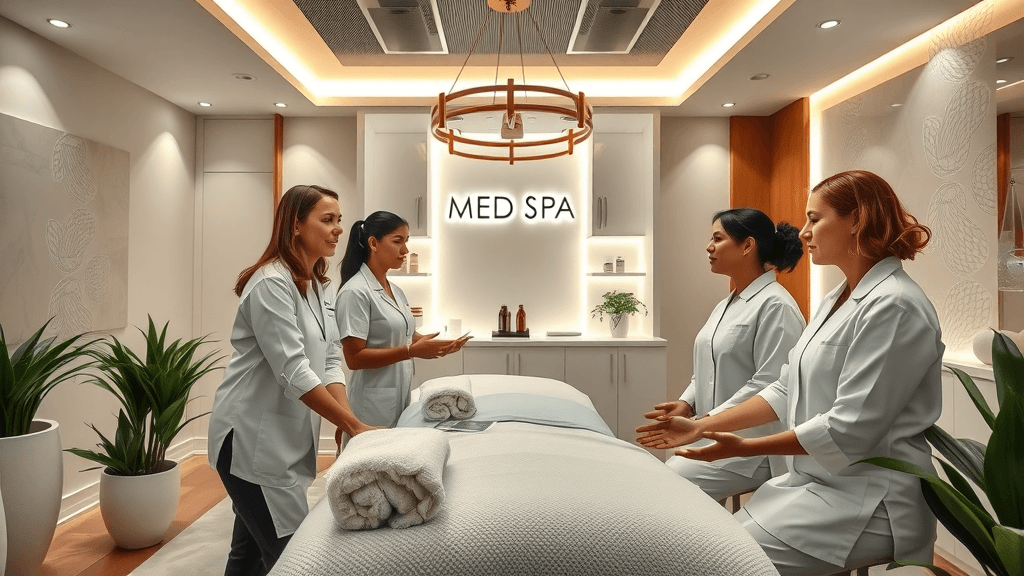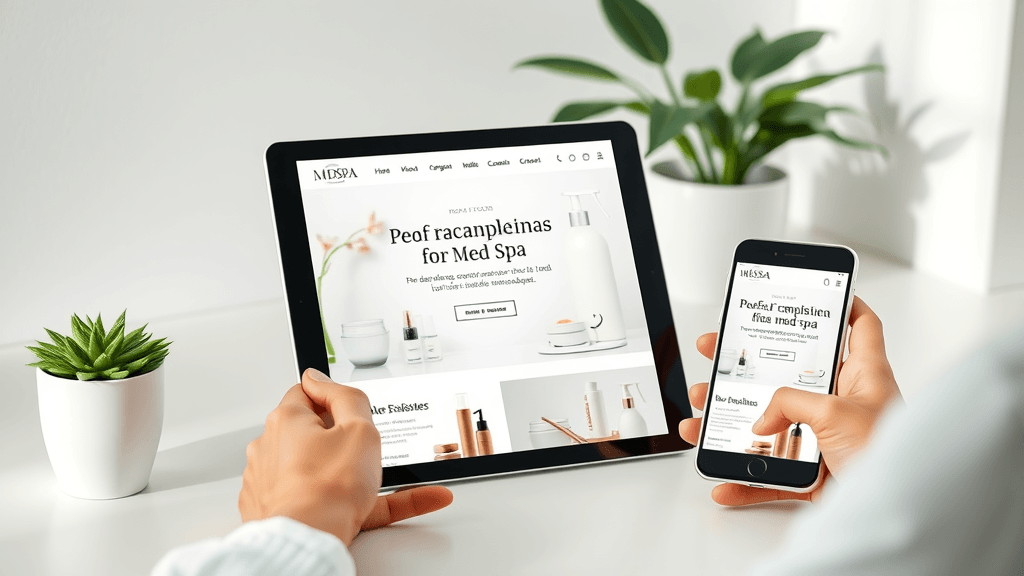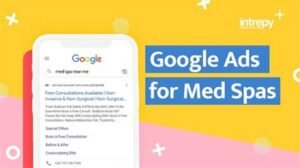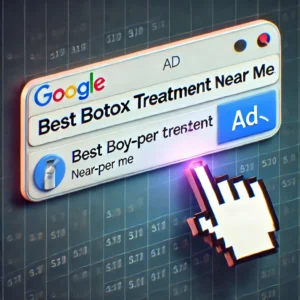Did you know? Research shows that 60% of Botox campaigns underperform due to poor targeting—don’t let yours be part of the statistic. Every dollar counts when promoting your medical spa, and ineffective botox advertising could be draining your budget while missing valuable clients. If you’re wondering whether your botox ads are working as hard as they should, this comprehensive guide will show you exactly how to optimize your campaigns and maximize your return on investment (ROI).
Unconventional Insights: Are You Missing Key Factors in Botox Ad Optimization?
Most med spa owners spend significant budgets on botox ad optimization, yet many fail to see real growth. The truth is, it’s not just about having eye-catching ads—it’s about smart targeting, creative testing, and ongoing refinement. Botox marketing is more competitive than ever, and simply copying what everyone else is doing won’t differentiate your med spa. By focusing on often-overlooked factors—like advanced audience segmentation and landing page alignment—you can outperform competitors and attract the ideal potential clients for your aesthetic treatments. This article will expose hidden pitfalls and provide new perspectives for high-performing botox ads.
“Research shows that 60% of Botox campaigns underperform due to poor targeting—don’t let yours be part of the statistic.”
Understanding the True Cost of Ineffective Botox Ads
Poorly optimized botox ads don’t just waste your marketing dollars—they can also hurt your brand reputation and stunt your med spa growth. When ad spend goes to audiences who aren’t interested or ready to book, your cost-per-lead soars. Every missed opportunity is a client lost to competing med spas. Additionally, the wrong ad messaging might attract bargain hunters instead of loyal, high-value patients. Over time, inefficient ad campaigns can create a cycle of disappointment, increasing your frustration with digital marketing. To avoid these pitfalls, you must analyze every stage of your advertising—copy, visuals, targeting, and landing pages—to find and fix leaks in your strategy.

What You’ll Learn About Botox Ad Optimization and Effective Botox Marketing
- The principles of high-ROI botox ad optimization strategies
- The latest trends in digital marketing for botox ads
- How to analyze, test, and refine botox ads
- Actionable marketing strategies for your medical spa
Botox Ad Optimization: The Foundation for Profitable Botox Advertising
What Is Botox Ad Optimization?
Botox ad optimization is the ongoing process of improving your botox ads to attract the right audience, generate quality leads, and increase bookings at your med spa. This involves refining everything from ad copy to targeting options. By using data from your ad performance, you systematically test and adjust elements like keywords, images, and call-to-actions to maximize ROI. Instead of relying on guesswork, optimization helps your marketing dollars work smarter—not harder. A well-optimized botox ad campaign adapts to market changes and evolves with your audience’s preferences, keeping you ahead of the competition in the fast-paced world of medical aesthetics.
Why Botox Ad Optimization Is Essential for Medical Spa Growth
If you want your medical spa to thrive, botox ad optimization must be a core part of your marketing strategies. The botox market is crowded; without continuous campaign testing and creative refining, even great ads quickly become invisible. Optimization protects your marketing investments by ensuring each ad attracts potential clients who are interested and ready to book. The benefits go beyond lead generation—optimized ads build trust, credibility, and encourage repeat visits. By adopting a growth mindset and using optimization techniques, your med spa can reduce wasted spend, lower acquisition costs, and secure a bigger slice of the competitive botox market.

Impact of Targeting the Right Botox Market
Your med spa’s success with botox advertising hinges on reaching the right audience. Every botox ad needs to be tailored for people most likely to book a treatment: often women ages 25–55, but with sub-groups based on interests, location, and income. Precise targeting allows you to serve bespoke offers, messaging, and services to those who value your expertise. Segmenting your audience with Google Ads or social media platforms ensures you’re not paying for irrelevant clicks or impressions. This approach doesn’t just save money; it also attracts higher-quality leads, fills your schedule, and drives real growth in the competitive botox market.
Market Trends: Discovering What’s Driving the Botox Ads Landscape
Analysis of the Current Botox Market and Aesthetic Treatments
The botox market has evolved rapidly, thanks to new technologies, changing beauty norms, and the rise of minimally invasive aesthetic treatments. Today’s consumers are more informed, research-driven, and expect transparency from their med spa providers. Social proof—such as reviews, before-and-after photos, and testimonials—now plays a big role in decision-making. Staying updated on market trends helps spas adapt their botox marketing campaigns for maximum effectiveness. As competition grows, successful med spas are investing in educational content and ethical advertising to build trust and long-term loyalty amongst potential patients seeking safe, expert aesthetic solutions.
The Rise of Social Media in Botox Advertising
Social media platforms like Facebook and Instagram have transformed botox advertising. Creative posts, influencer partnerships, and visually engaging reels or stories can supercharge your organic reach, while paid ads let you target specific customer segments with pinpoint accuracy. By blending organic and paid strategies, you maintain a constant conversation with your audience. Authentic behind-the-scenes content and honest patient journeys build trust, while targeted ads deliver offers to those most likely to convert. To stand out in the ever-changing world of digital marketing, savvy med spa owners leverage social media analytics to refine their botox marketing efforts and boost ROI.
| Criteria | Organic Social Media | Paid Social Media Ads |
|---|---|---|
| Reach | Limited to followers and shares, often low for business pages | Can target specific demographics, locations, and interests for wider reach |
| Cost | Free (except for time/tools) | Budget required per impression or click |
| Engagement | Higher when content is authentic and community-driven | Varies based on ad quality, format, and targeting |
| Lead Quality | Often higher, as followers may already know your brand | Potential to reach new but colder audiences |
| Control | Algorithms may limit reach unpredictably | Full control over who sees your ads and when |

Platform-Specific Botox Ads: Google Ads, Facebook, and Instagram
To win in the botox market, your ad strategy should fit each platform’s strengths. Google Ads capture intent-driven patients actively searching for botox treatments, making them ideal for direct lead generation. Facebook and Instagram, in contrast, are excellent for sparking desire, building trust, and engaging potential clients with vivid visuals and stories. Platform-specific botox ads require unique creative and calls-to-action: what resonates in a Facebook carousel may not work in a search-driven Google ad. Testing, tracking, and refining across platforms is essential for optimizing results and ensuring your budget delivers maximum bookings.
Crafting Irresistible Botox Ads: Creative Strategies That Convert
High-Converting Copywriting and Visuals for Botox Ads
Great botox ads start with compelling headlines and engaging visuals. Ad copy should highlight clear benefits (“Smooth away wrinkles in minutes!”), create urgency (“Limited spaces—book now!”), or solve a pain point (“Tired of tired eyes?”). Pair text with high-quality, authentic images or short videos showing happy clients, natural results, or the spa experience. Always feature real clients (with permission) or relatable stock models. For a strong conversion focus, align your message with your med spa’s branding—consistency builds trust with prospective patients. Remember: avoid unrealistic filters or excessive retouching, as authenticity in botox advertising attracts discerning clients who value transparency.

Leveraging Social Proof and Building Trust with User-Generated Content
User-generated content, like before-and-after selfies or video testimonials, provides the social proof that boosts bookings for your med spa. Sharing client success stories builds trust and credibility more effectively than direct sales language alone. Encourage your satisfied clients to share their experiences (always with consent), then amplify these across your social media, landing pages, and ads. Engaging with comments, answering questions, and reposting user content positions your spa as approachable and customer-focused. Social proof works across all platforms, reinforcing the message that your spa delivers genuine, satisfying botox treatments that real people love.
Differentiating Your Medical Spa from Competitors
In saturated local markets, standing out is critical for med spa growth. Differentiate by highlighting unique experiences, exclusive offers, or your most qualified providers. Focus on niche audiences or signature treatment packages and pair them with strong branding and consistent messaging. Use testimonials from loyal patients and invest in high-quality educational content—such as blog posts or Q&A videos—that demonstrate expertise. For lasting impressions, ensure every touchpoint (ads, landing pages, email) looks and feels unmistakably your brand. Showing what makes your practice special will make your botox ads more memorable and persuasive than generic “me too” competitors.
- 5 Proven hooks for botox advertising headlines
- “Erase years in minutes—Is Botox your next beauty secret?”
- “Look refreshed for less—Summer Botox Specials!”
- “See why our patients trust us with their skin”
- “Real results, real patients, real confidence”
- “Turn back time—Botox appointments this week!”
- Checklist for compelling ad imagery
- Clear, high-resolution photos (no harsh filters)
- Relatable models or real patient results
- Visible branding elements
- Before/after photos with similar poses and lighting
- Friendly, natural expressions
Optimizing Google Ad and Google Ads Campaigns for Botox
Setting Up Your Google Ads for Botox Ad Optimization
Getting the most out of Google Ads begins with a strong campaign foundation. Set up separate ad groups for each service or audience segment—like “Botox for Forehead Lines” and “Botox for Crow’s Feet.” Customize your campaigns for location, age, and even device type (mobile vs. desktop). Use ad extensions (call, location, and sitelinks) to give potential clients more ways to connect. Track conversions obsessively, set realistic cost-per-lead goals, and monitor search term reports to spot wasted spend. A laser-focused google ad setup allows you to optimize quickly and scale what works, ensuring you’re always moving toward stronger ROI.

Keyword Research: Focused Botox Marketing
Effective keyword research is the backbone of successful botox ad campaigns. Start with broad but relevant terms like “botox near me” or “best med spa [city],” then dig deeper into long-tail keywords (“preventative botox consultation,” “first-time botox offers”). Use tools like Google Keyword Planner or SEMrush to identify the terms potential clients are actually searching. Group keywords by intent (informational vs. booking), and continually scan for negative keywords to avoid irrelevant clicks. Regularly updating your keyword lists ensures you stay ahead of shifts in the botox market and drive the right clients to your landing page rather than competitors.
Effective Use of Audience Targeting in Google Ads
Modern botox advertising with Google Ads allows advanced audience targeting to maximize ROI. Layer demographic filters (age, gender, income), retarget website visitors, and create lookalike audiences based on your best clients. Use in-market audiences (actively searching for botox treatments), custom intent groups (people researching botox safety or costs), and remarketing lists for health or beauty interests. With audience targeting, you reach potential patients when they’re most ready to book—cutting costs on wasted impressions and supercharging conversion rates. Always experiment with segmentation to fine-tune your botox marketing campaigns.
| Keyword | Search Intent | Suggested Ad Headline |
|---|---|---|
| botox near me | Booking/Location-based | “Book a Botox Appointment Nearby Today!” |
| best med spa for botox | Research/Comparison | “Why Choose Us for Your Next Botox Treatment?” |
| preventative botox | Educational/Informational | “Learn About Preventative Botox—Free Consults!” |
| first-time botox deals | Offer/Discount seeking | “First-Time Botox Specials—See Before & Afters” |
A/B Testing for Continuous Botox Ad Optimization
Never stop improving your botox advertising. Use A/B testing to trial different headlines, images, offers, and calls-to-action in your ads. Run tests one variable at a time and compare performance over a set period. You might discover that highlighting real patient results gets more clicks than generic before/afters, or that a seasonal offer performs better than a year-round campaign. Gather insights from Google Ads dashboards and social platforms to refine your approach, always keeping your medical spa’s goals in mind. Continuous testing leads to a data-driven strategy that adapts to changes and maximizes your return on ad spend.
Maximizing ROI: Botox Ad Optimization for Every Budget
Strategic Budget Allocation for Botox Advertising
You don’t need the biggest budget—you need the smartest allocation. Divide your ad spend between high-performing platforms (like Google Ads, Facebook, and Instagram) based on past results. Start with a test budget, monitor your cost-per-lead daily, and shift funds toward what’s working. Don’t forget to reserve a portion for retargeting—these audiences often convert at a lower cost. Break down your botox ad budget by campaign type, so you can optimize for awareness, consideration, and bookings. Careful allocation ensures every dollar helps fill your appointment calendar and grow your med spa sustainably.

Measuring and Interpreting ROI in Botox Marketing
To measure your ROI, always track key metrics: cost per acquisition (CPA), click-through rate (CTR), and return on ad spend (ROAS). For meaningful results, link ad performance with actual bookings (not just leads!). Use analytics platforms to see which ads drive phone calls, form fills, or online appointments. Compare your ROI over different periods and campaigns to spot trends and double down on the highest performers. Smart optimization means spending smarter, not more—so analyze your botox marketing results and make data-driven decisions for continuous growth.
“Smart optimization isn’t about spending more, but spending smarter—track ROAS relentlessly.”
Case Study: Med Spa’s Botox Market Strategy Transformation
One local med spa struggled with under-performing botox ads, high cost-per-lead, and low bookings. By partnering with a marketing agency, they restructured their Google Ad campaigns, focused on new audience segments, and swapped generic images for real patient results. They introduced A/B testing on landing pages and added more social proof. Within three months, their cost-per-lead dropped by 40%, and appointments doubled. The lesson: consistent botox ad optimization, creative testing, and a relentless focus on results turned their marketing budget into a predictable engine for spa growth.

Landing Page Optimization: Turning Clicks into Med Spa Clients
Best Practices for Botox Landing Pages
A high-converting landing page is the bridge between your botox ads and actual bookings. Keep it simple, on-brand, and focused on the specific service advertised. Use a strong headline, concise copy, and clear calls-to-action (“Book your free consultation!”). Add before-and-after images, trust badges, and testimonials for credibility. Minimize distractions—hide the main website menu and remove unnecessary links. Mobile optimization is key, as most visitors come from smartphones. Test layout, form length, and button colors regularly and prioritize speed—slow pages kill conversions. With a data-driven approach, your landing page becomes a magnet for high-quality clients.
Ensuring Consistency Between Botox Ads and Landing Page Messaging
Your landing page must deliver exactly what your botox ad promised. Any mismatch in headline, offer, or visuals will confuse visitors and lower conversion rates. Always align your value proposition, tone, and branding between the ad and the page. For example, if your ad headline says, “First-Time Botox Deals—Limited Offer,” make that the main message at the top of your landing page. Consistency builds trust and guides users smoothly along the booking path, from the first click to the final appointment confirmation.
Building Trust and Using Social Proof Effectively
The top factor in botox marketing success? Building trust. Place client testimonials, authentic reviews, and professional credentials front and center on every landing page. Strong social proof reassures new clients they’re making a safe choice. You can also add third-party validation, like “As seen in…” or medical accreditations, to further reinforce credibility. Ensure easy access to staff bios, contact details, and clear privacy promises—small details that can turn a curious visitor into a loyal med spa patient.

Integrating Digital Marketing & Spa Marketing Strategies for Botox Ads
Combining Email, Social Media, and Paid Botox Advertising
An integrated marketing approach maximizes your reach and impact. Start by syncing your social media efforts with lead magnets (like eBook downloads or free consultations), then nurture leads through automated email drip sequences. Use custom audiences from email lists or website visitors to create targeted paid ads on Facebook and Google. Consistency across all platforms—online, email, and even print—builds familiarity with your brand, making it easier to convert first-time curious visitors into returning med spa clients.
Using Data Analytics to Drive Botox Ad Optimization
Analytics are the secret weapon in continuous botox ad optimization. Use Google Analytics, Facebook Insights, and call tracking tools to monitor traffic patterns, form completions, and cost-per-booking. Focus on what matters: not just visits, but engaged users who schedule appointments. Regular review of your data will help refine audience segments, highlight underperforming ads, and reveal your most profitable creative elements. Leveraging insights turns guesswork into a repeatable, scalable marketing strategy—filling your schedule, month after month.
- Essential spa marketing tools to track ad performance
- Google Analytics: for website/landing page traffic
- Facebook Business Suite: for campaign and audience insights
- CallRail or similar: for phone call tracking
- Mailchimp or Constant Contact: email campaign tracking
- Hotjar: for landing page user experience analysis
Why is Gen Z skipping Botox? (People Also Ask)
Answer: Gen Z’s attitudes toward botox and factors influencing their aesthetic treatment decisions, including marketing and societal trends.
Gen Z approaches aesthetic treatments differently than Millennials and Gen X. Many young people are focused on preventative skincare, wellness, and holistic health over injectable treatments. Social media education, influencer culture, and increased transparency have made this demographic both highly aware of botox, but also more cautious. Gen Z values authenticity, prefers educational content, and responds to inclusive, honest marketing rather than direct sales pitches. Understanding their unique motivations and concerns can help med spas adapt botox marketing strategies for this emerging audience.
How to optimize Botox? (People Also Ask)
Answer: Steps for comprehensive botox ad optimization, targeting, creative testing, and campaign measurement for medical spas.
To fully optimize your botox ad campaigns, start by researching your audience—demographics, location, and their main concerns. Test ad variations with different headlines and images, using A/B testing to find what resonates most. Tighten your Google Ads targeting with location, interests, and negative keywords. Continually monitor your results, focusing on metrics like cost-per-click and conversion rates. Finally, align your landing page and follow-up emails with your ad messaging to build trust and boost bookings. Repeat steps monthly to stay ahead in the fast-evolving botox market.
What is the 2cm rule for Botox? (People Also Ask)
Answer: Explanation of the 2cm rule and its impact on marketing messaging in botox ads for the medical spa market.
The “2cm rule” is a clinical guideline for safe Botox injection points in facial treatments, often referenced by providers to ensure patient safety. For botox advertising, mentioning safety protocols and science-backed methods (like the 2cm rule) in your marketing messaging can reassure potential clients who are new to injectables. While ads can’t provide detailed medical advice, referencing your team’s expertise and safety standards builds trust and positions your med spa as a credentialed, responsible provider.
How to advertise for Botox? (People Also Ask)
Answer: Best practices and compliance guidelines for successful botox advertising, highlighting digital marketing, social media, and spa marketing legalities.
Advertising botox treatments requires strict compliance with regulations—since botox is a prescription drug, never make unproven claims or show misleading before-and-afters. Always include disclaimers, follow local medical advertising laws, and stay compliant with platform rules (such as Facebook’s ban on body shaming language). Highlight the qualifications of your providers and use real client testimonials wherever possible. Focus on educational content, clearly explain your process, and create a welcoming atmosphere for new patients. These best practices protect your med spa’s reputation and help you reach clients ethically and effectively.
Key Takeaways: Botox Ad Optimization Essentials
- Effective botox ad optimization drives profitable growth for medical spas
- Continuous testing, targeting, and creative refreshing boost ROI
- Integrating multiple marketing strategies maximizes reach and impact
FAQs on Botox Ad Optimization for Medical Spas
- What metrics matter most for botox ad optimization?
Focus on return on ad spend (ROAS), cost-per-lead, click-through rate (CTR), and actual appointment conversions. These indicators show how efficiently your budget turns into bookings for your med spa. - How often should I refresh my botox marketing creatives?
In the fast-paced botox market, review and refresh your ads every 4–6 weeks. Regular updates prevent ad fatigue, improve click rates, and keep your messaging competitive. - What is a good budget for Google Ads in the botox market?
Begin with $500 to $1,000 per month for a single-location med spa. Adjust based on campaign performance and lead quality, focusing on continuous optimization to maximize ROI.
Conclusion: Transform Your Botox Ads Through Optimization & Strategic Botox Marketing
Summing Up Proven Campaign Strategies for Maximum Botox Ad ROI
Unlock growth and profitability by treating botox ad optimization as an ongoing process. Commit to regular testing, measurement, and creative innovation to win in the increasingly competitive botox market.
Get Expert Help with Botox Ad Optimization: Take Action Today
Ready to see better results from your botox ads? Contact us now for a free campaign audit!
To enhance your understanding of optimizing Botox advertising campaigns, consider exploring the following resources:
“Botox Marketing Ideas: 6 Strategies to Get More Leads” (wisevu.com) offers practical strategies to attract more clients, including leveraging local SEO and running targeted ads across multiple platforms.
“Botox Marketing: Are You Reaching Your Ideal Client?” (forbes.com) discusses the importance of understanding your target demographic and selecting appropriate digital platforms to effectively reach potential clients.
These articles provide actionable insights to refine your marketing approach and improve the return on investment for your Botox advertising efforts.






